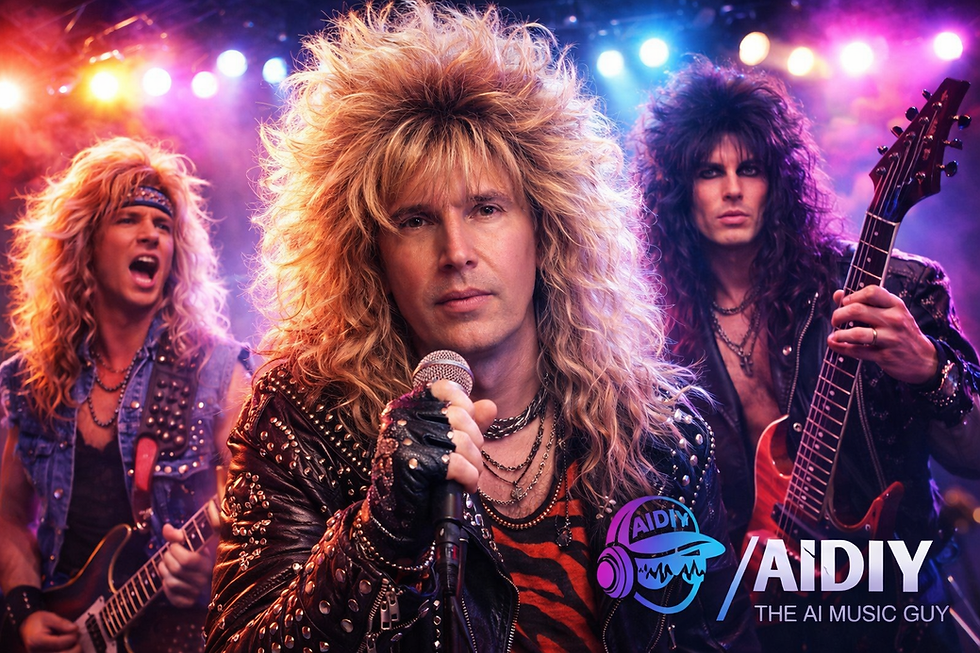So... Who Exactly Is TaTa? And What Is Stage Zero?
- Matthew St Onge
- Jun 10, 2025
- 4 min read

Recently, Timbaland announced the launch of a new AI artist called TaTa through his venture, Stage Zero. The headlines caught my attention — and probably yours too — with quotes like:
“She is not an avatar. She is not a character. TaTa is a living, learning, autonomous music artist built with AI.”

It’s a bold statement. But if you’ve been experimenting in the AI music space — especially with tools like Suno — you might be wondering the same thing I am:
Isn’t this basically what we’ve already been doing?
🎛️ The Suno Connection
Timbaland has been a longtime user of Suno and now serves as a strategic advisor. According to reports, TaTa’s voice came from a Suno generation that stood out to him. From there, his team developed the music by:
Uploading human-created demos to Suno
Using AI to generate the instrumental and vocal layers
Shaping the final product with human-written lyrics
In short: it’s the same workflow many independent AI musicians are already using.
🎤 So What Makes TaTa Different?
The difference isn’t in the technology. It’s in the presentation.
Stage Zero is positioning TaTa as more than just a voice. She’s part of a broader brand and storytelling effort — what they’re calling the first star of a new genre: A-Pop.
That’s where the real distinction lies: branding, narrative, and investment.
🤔 Questions This Raises for the Community
As someone who’s been encouraging people to explore AI music tools and build with them, I think this announcement brings up some important questions:
What makes an AI artist an "artist" versus a tool-generated voice?
If TaTa is branded as autonomous, how should we be framing our own AI-driven music projects?
Could the success of TaTa lead to more restrictions or exclusive access to AI voice models?
Are we entering a phase where only well-funded teams can define what an "AI artist" looks like?
And a few deeper ones:
Is this an inflection point — where AI music becomes more centralized and less open?
What happens when the platforms we rely on shift toward closed-door collaborations with labels and celebrity producers?
These aren’t rhetorical questions. They’re the real ones a lot of us are quietly asking as we upload our next track or build a new AI persona. The landscape is moving fast — and sometimes, it feels like we’re not being asked to steer. We’re being asked to clap from the sidelines.
💡 What's In It For Us?
Timbaland’s comments suggest he's embracing AI artistry as part of his creative process — which sounds promising for the rest of us. But here’s the thing: so far, that seems to mean he’s embraced TaTa, not a broader roster of AI talent.
There’s no indication he’s creating a platform that supports independent AI artists, or even showcasing others using tools like Suno or Udio. This is a project about his vision, his artist, his IP — which is fair. But it does raise the question:
Is there a place for the rest of us in this new wave, or are we just proving grounds for whatever voice catches the attention of someone famous?
So what could be in it for us?
Possibility A:
It opens doors. If Stage Zero and Timbaland’s work help normalize AI artists and bring legitimacy to the concept, then maybe the rest of us benefit from that rising tide. Maybe people outside our community start to understand what we're doing — not as a gimmick, but as a real part of music’s evolution.
Possibility B:
It accelerates the divide. If the tools we all use start becoming gated behind brand deals, licensing agreements, or industry partnerships, it’s possible the indie AI artist scene becomes less about access and more about luck — or connections.
Possibility C:
It motivates creators like us to double down on transparency. We’ve been honest about how we build — showing our process, talking through prompts, remixing output openly. That might become our competitive edge in a world of polished, press-release-ready AI artists.
And lastly — Possibility D: Maybe this is the start of a new kind of partnership between grassroots AI creators and industry veterans. That’s the best-case scenario. But it’ll only happen if those doors open intentionally. Not just after the fact.
Right now, it looks like TaTa isn’t just the poster child for A-Pop… she is A-Pop. The rest of us? We’re either observers or outsiders — unless we create our own space within it.
📣 The Takeaway
I think it’s exciting that major players are starting to take AI music seriously. Timbaland’s involvement gives visibility to a space many of us have been quietly building in.
But let’s be clear: this isn’t a brand-new paradigm shift in music tech. It’s a well-executed example of what’s already possible — just packaged differently.
So if you’re creating with AI, you’re not behind. You’re part of the same wave — maybe just without the press release and marketing budget.
— Matt @ AIDIY.tech







Comments